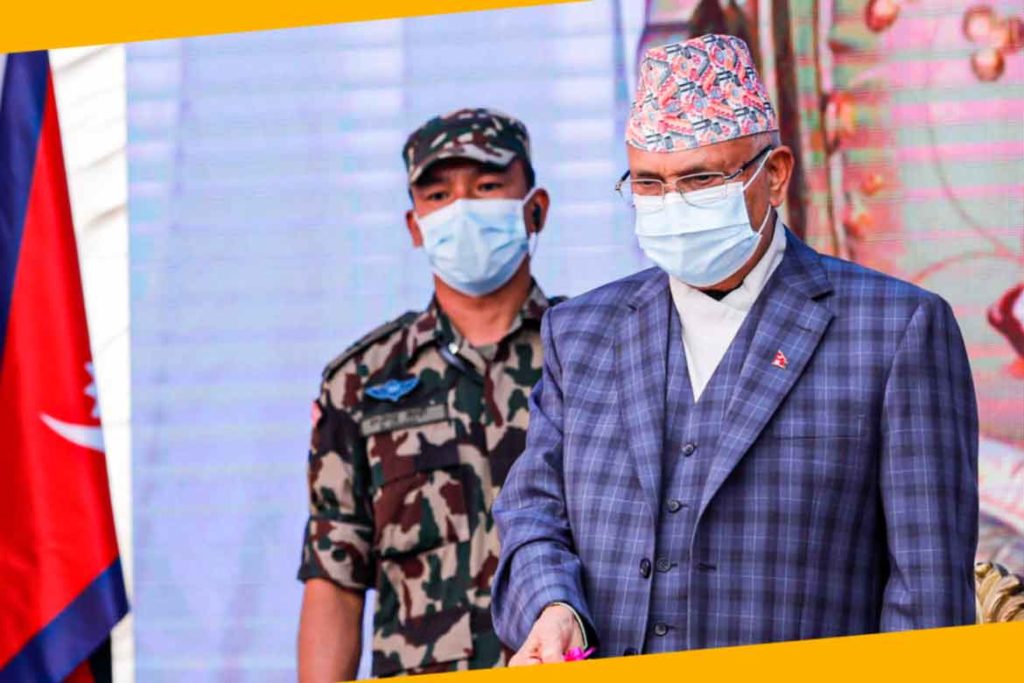The two year continuous political struggle of Nepal finally ended. This happened when Nepali Prime Minister Oli lost the vote of confidence and faced defeat in Parliament. Now he will have to resign. The leaders of his own party were demanding for his resignation since long. However, on Sunday it was felt that Oli would save the chair by manipulating this time too. But he failed this time. Oli has remained more inclined towards China and he also gave many anti-India statements on several occasions. India too has it’s eye on these developments.
124 votes against Oli
In total 232 MPs took part in the voting process which took place on Monday. Among these, 124 voted against Oli while 93 voted in his favor. Also, 15 of them were neutral. Oli needed a total of 136 votes to save the government. The Parliament of Nepal has a total of 271 members. Madhav Nepal and Jhalanath Khanal did not participate in group voting. The next sitting of Parliament will now take place on Thursday. This is when further strategy will be formulated.
Oli reduced to Caretaker Prime Minister
As per the Nepal’s constitution, after losing the trust vote, Oli is only left as the caretaker prime minister. Hence, he has no more constitutional powers now. So there are only two options left, first is to resign immediately, and the other is to hold the office until new government is formed.
How will the new government form?
According to the official, no party or coalition has seats to form a government. All are scattered. President Vidya Devi Bhandari had asked for the submission of claims to form the government by 13 May Thursday. But, in case no party or coalition can get enough seats to form a government, then the President shall appoint someone as the Prime Minister who holds the support of two or more parties. This might further lead to a new alliance. May be, two opposing parties come together. But, it is decided that elections will have to be held.
Every time chair was saved
Oli became Prime Minister for the second time in February 2018. For the first time since then, he was facing a floor test in the 271-seat Nepali Parliament. The important political party, Madheshi party, which was supporting Oli, decided to abstain from voting. Then it seemed certain that the government would fall. However, in 2 years many such opportunities came, but they saved the government and the chair each time.
After several meetings with Oli’s own party and leaders of the Janata Samajwadi Party, he said on Sunday evening, I am confident that the loyal leaders and activists of this party will not work to harm the party and the communist movement.
Math of seats in Parliament
Oli’s party CPN (UML) has 121 seats in the lower house. The main opposition party, the Nepali Congress, has 63 seats and the Prachanda-led Maoist Party has 49 seats and the Janata Samajwadi Party has 32 seats. Other parties have two MPs. Two MPs each of Nepali Congress and Samajwadi Party are suspended.

Also read: Are Indo-Nepal Relations Improving Again?
New political trick failed
Oli wanted to form a minority government and hold elections. He himself recommended President Bidya Devi Bhandari to call a special session for the floor test. In such a situation, some analysts say that calling for the floor test was his new trick. He wanted to form a minority government and wanted to show the court that he had lost his majority. After this, they want to go to the election directly. The term of the current parliament of Nepal is ending in 2022.
India’s interest in Nepal’s politics
India has no role in the current political crisis, but ever since Oli became Prime Minister, he has often made many anti-India remarks in order to divert attention from this crisis situation that has come upon him. When Oli had to resign for the first time in a minority, he still accused India.
Even after forming a government with Prachanda, whenever he was in crisis, he raised some anti-India issue. Including the issues like that about Nepal’s new map or whether it be about the Indo-Nepal border dispute, the one about Kalapani.
In all these disputes, the role of Chinese Ambassador Yangki is considered to be very crucial. He has direct access to the office of Nepal’s Prime Minister, as well as to the Army Headquarters. Nepal’s Chief of Army Staff Purnachandra Thapa is said to be close to him.
